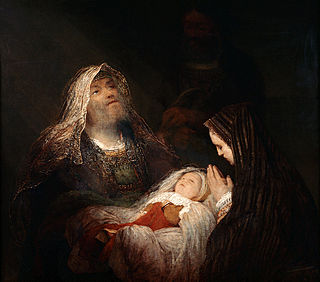This page is based on this
Wikipedia article Text is available under the
CC BY-SA 4.0 license; additional terms may apply.
Images, videos and audio are available under their respective licenses.

Wystan Hugh Auden was an English-American poet. Auden's poetry was noted for its stylistic and technical achievement, its engagement with politics, morals, love, and religion, and its variety in tone, form and content. He is best known for love poems such as "Funeral Blues", poems on political and social themes such as "September 1, 1939" and "The Shield of Achilles", poems on cultural and psychological themes such as The Age of Anxiety, and poems on religious themes such as "For the Time Being" and "Horae Canonicae".
Dáibhí Ó Bruadair was one of the most significant Irish language poets of the 17th century. He lived through a momentous time in Irish history and his work serves as testimony to the death of the old Irish cultural and political order and the decline in respect for the once honoured and feared poetic classes. His ode, D'Aithle Na bhFileadh upon the death of a fellow poet is a particularly poignant reminder of this decline and lament that Ireland was now a far less educated place due to it.

The Nunc dimittis is a canticle from the opening words from the Vulgate translation of the New Testament in the second chapter of Luke named after its incipit in Latin, meaning "Now you dismiss". Since the 4th century it has been used in such evening worship services as Compline, Vespers, and Evensong.
The Seasons may refer to:
Louis Osborne Coxe was an American poet, playwright, essayist, and professor who was recognized by the Academy of American Poets for his "long, powerful, quiet accomplishment, largely unrecognized, in lyric poetry." He was probably best known for his dramatic adaptation of Herman Melville's Billy Budd, which opened on Broadway in 1951.

The Shield of Achilles is a poem by W. H. Auden first published in 1952, and the title work of a collection of poems by Auden, published in 1955. It is Auden's response to the detailed description, or ekphrasis, of the shield borne by the hero Achilles in Homer's epic poem the Iliad.
The gates of horn and ivory are a literary image used to distinguish true dreams from false. The phrase originated in the Greek language, in which the word for "horn" is similar to that for "fulfil" and the word for "ivory" is similar to that for "deceive". On the basis of that play on words, true dreams are spoken of as coming through the gates of horn, false dreams as coming through those of ivory.
The Best American Poetry series consists of annual poetry anthologies, each containing seventy-five poems.
Nationality words link to articles with information on the nation's poetry or literature.
Nationality words link to articles with information on the nation's poetry or literature.
Dafydd Ddu o Hiraddug, also known as Dafydd Ddu Athro o Hiraddug, was a Welsh language poet, grammarian, and cleric in the diocese of Llanelwy. He was once believed to be the son of a certain Hywel ap Madog of Tremeirchion, but this has now been disproven.
Vespers is the Catholic and Orthodox prayer service.
Waller Rodwell Wright was an English barrister, author and diplomat. His best-known work was the poem Horæ Ionicæ. He was British consul-general for the republic of the Seven Islands from 1800 to 1804.
Matins is the canonical hour ending at dawn in the Roman Catholic monastic Liturgy of the Hours.

"A Song for Simeon" is a 37-line poem written in 1928 by American-English poet T. S. Eliot (1888–1965). It is one of five poems that Eliot contributed to the Ariel poems series of 38 pamphlets by several authors published by Faber and Gwyer. "A Song for Simeon" was the sixteenth in the series and included an illustration by avant garde artist Edward McKnight Kauffer. The poems, including "A Song for Simeon", were later published in both the 1936 and 1963 editions of Eliot's collected poems.
Bucolics is a sequence of poems by W. H. Auden written in 1953 and 1953. The seven poems in the sequence are: "Winds", "Woods, "Mountains", "Lakes", "Islands", "Plains", and "Streams".

The diurnal offices or daytime offices are the canonical hours for recitation during the day. Interpretation of their number and identity varies.
Elizabeth Emmet Lenox-Conyngham also known as Mrs. George Lenox Conyngham was an Irish poet and translator.





